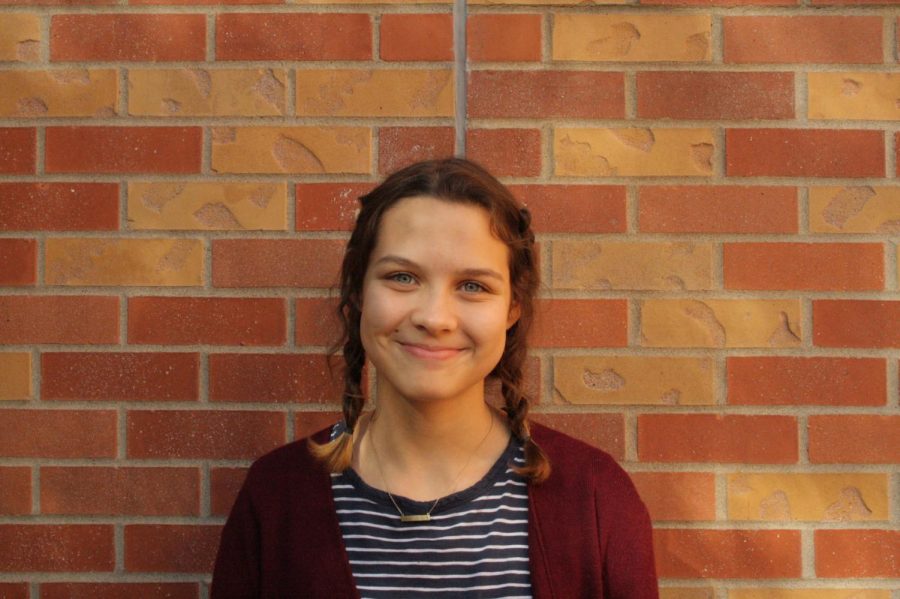AP Culture Needs To Change
February 24, 2020
“I only got five hours of sleep last night,” one student says; “weak, I got two,” another retorts.
This is a conversation that I find myself in at least once a week, and one I think many students experience. Many students feel pressured by their peers to enroll in advanced courses, and push themselves as far as possible to succeed.
Students fear being called stupid by their friends, so they take on an unrealistic workload. They trap themselves under four to five advanced courses and multiple activities just to keep up with their peers. Advanced Placement courses are often associated by adults with increased success, but with students, they mean increased stress.
Students now are taking AP courses to pad college resumes and maintain a higher weighted GPA rather than to get college credit, which is what they were designed to do. I personally am one of those people. I fully acknowledge that I am an active participant and part of the problem, but I am seeking to change both my participation and the culture.
Rather than encouraging learning and future success, course overloading leads to learning how to cut corners, cheat, and push yourself to your limits. According to the New York Times, AP students are more likely to cheat because they think that their peers are too. If students think that others are cutting corners to succeed they follow suit, scared to feel left behind. This is not just a national phenomena, I have seen and experienced it personally here at North.
The amount of times I have seen students brag about being sleep deprived, not having time to themselves, or even not having time to eat is staggering and sad. Even worse, these people are some of my closest friends, and I have heard myself join in on these conversations.
Deeply rooted in not only high school culture, but also our national identity is the idea that to be valuable to a school, company, or to your own self you need to work yourself to death. The idolization of not just working hard but working yourself to the bone at the expense of your health and relationships is damaging, and something that doesn’t go away in adulthood.
I traded my own identity to be stressed. In order to fit in, I joined clubs and took classes I did not want to take. All so I wouldn’t be viewed as inferior. This, unfortunately, is a common epidemic in Olathe North. Programs require some students to take more rigorous course loads, but the stress is worsened by the culture surrounding them.
I am in no way discouraging students from getting involved or take advanced courses, instead I am advocating for self-awareness and countering the encouragement of unhealthy habits. Advanced courses can help advance students in their futures, and not every student participates in the damaging aspects of AP culture.
I believe the AP culture is a mindset created by students which can be solved by the very same students. It takes a bit of self awareness to realize healthy ways to cope with heavy workloads and stress instead of making martyr competitions of who is suffering worse.
To change this, we must reflect introspectively and be willing to make changes. It takes courage, but we must be brave enough to counter the norm. We must explore and learn our own personal limits of how many advanced courses and extracurriculars we can handle while maintaining our own health.
No matter how great the pressure of fitting in is, we must not succumb to it and make damaging choices. Learning how to accept help, when to say no to unnecessary stressors, and taking time to yourself to reduce stress are imperative to defeating a culture that feeds off of insecurity and overworking.
Not only do we personally need to reflect and make positive changes, but Olathe North itself needs to as well. In my own experience, save a few outliers, I have been met with nothing but support from AP teachers. Most AP teachers advocate knowing your own limits , and especially getting enough sleep at night. This trend of support and equipping students with healthy ideas and skills is one I think that teachers should not be the only ones tasked with supporting students.
I believe that a good way to combat the culture is having the school administration and ultimately the district advocate and educate high stress AP students and parents. The panorama surveys are a good start, but we need more action than simply knowing there is a problem. The district and school needs to act on this knowledge. Something as simple as a seminar for parents and students that take multiple AP courses on how to cope with stress and still take care of yourself while working hard could make a huge impact on students and the damaging AP culture.





